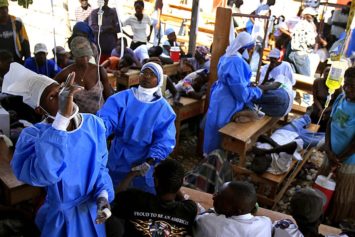When Hurricane Ivan pummelled Grenada in 2004, fierce gales snapped telephone masts like twigs. With the lines down, it took days before the outside world learnt the scale of destruction the tropical storm had wreaked in the Caribbean state.
In a country of just 100,000 people, 39 died. Aside from the physical scars, Ivan left a lasting, debilitating legacy: huge government debts inflated by the expense of rebuilding battered schools, infrastructure and homes. Despite restructuring those debts in 2005, Grenada was still vulnerable when the financial crisis struck, hurting its vital tourism industry. Finding itself on the ropes again, Grenada last month had to renege on its debts.
Grenada is not alone. Many of the smaller countries in and around the Caribbean basin are economically and financially stricken. International Monetary Fund officials say the region is on a “knife’s edge” as it faces years of painful adjustments. This economic fragility has critical implications for regional security. The Caribbean has become an increasingly violent nexus for trafficking drugs, guns and people – and fears are growing that piracy is returning as a strategic threat.
While the U.S. and Europe have lessened their engagement with the Caribbean, many of its countries have found a new friend willing to offer vital aid and investments: China. Former U.S. President George W. Bush described the Caribbean as America’s “third border,” but Beijing is now arguably on the cusp of supplanting Washington as the effective regional power.
As a result, officials inside and outside the region say the Caribbean is entering a crucial period that it will struggle to navigate unscathed. “The Caribbean is at a crossroads,” says Arnold McIntyre, the Grenadan head of the IMF’s regional technical assistance center. “It faces its most formidable economic challenge since independence.”
Read more: FT


